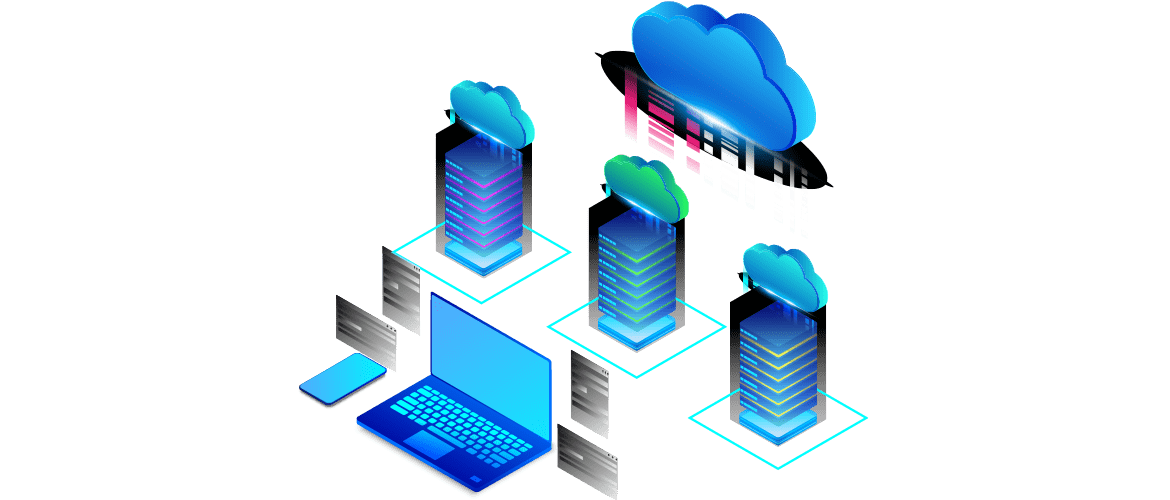And what is computing
Cloud computing gives you access to computing, storage, and network resources on demand. These resources can come from your own data center or from a cloud vendor. Depending on the type of service and deployment model you choose, cloud computing can help you manage costs while launching new products or services quickly, and it can scale to new locations to maximize performance and productivity.
Advantages of Cloud Computing
Cloud computing can enable businesses to access the resources they need even without on-premise hardware. This means that businesses can deploy services anytime, anywhere. Cloud computing can consolidate and manage hardware in fewer locations, reducing costs. With scalability to support workload fluctuations, it can enhance collaboration between remote teams and locations.
Cloud Deployment Model
There are two basic cloud deployment models: public cloud and private cloud. Your deployment model depends on your business needs and technical requirements. Since each workload has its own characteristics, You can use a combination of public and private cloud services. This is called a hybrid cloud or multi-cloud approach.
Public cloud
Public clouds provide pay-as-you-go access to computing, storage, and network resources. These services are provided by Amazon Web Services, Microsoft Azure*, Alibaba Cloud, Google Cloud and IBM And other cloud providers. Public clouds require little upfront cost and can be deployed quickly, speeding up time to market. They are also great for workloads that may only require a short run.
Private Cloud
A private cloud runs on the infrastructure of your data center. It requires high upfront costs and ongoing management, but it can save potential costs in the long run. For mission-critical workloads or legacy applications that are difficult or impossible to move to the public cloud, the private cloud can provide support. It is also an ideal model to help ensure compliance with privacy regulations or protect intellectual property.
Hybrid cloud
Hybrid clouds bring together your public and private clouds, so you can share applications and data between the two as needed. It allows your enterprise to run applications flexibly, Maximize potential cost savings and leverage resources while meeting scalability and control requirements.
Cloudy
The multi-cloud approach is to combine the services of different cloud providers. It gives you the largest range of services and price choices. The multi-cloud strategy relies on software to manage and orchestrate the resources of different providers, But it can provide enterprises with an extremely flexible and cost-optimized cloud environment.
Types of Cloud Computing
There are several types of cloud service models to choose from when purchasing cloud resources. While choosing the right level of support can help you make the most of your budget and resources.
Infrastructure as a Service (IaaS)
Infrastructure as a Service (IaS) Provides you with access to servers, networks, and storage. Although your business does not need to own or maintain hardware, your IT Teams still have to manage operating systems, databases, and applications.IaaS Maximum control and flexibility over all service models, and can be easily scaled or scaled down as needed.
Platform as a Service (PaaS)
Platform as a Service (PaaS) With IaaS Provides the same hardware resources, in addition to the operating system and database.PaaS Allows your business to develop, run, and manage applications without having to build and maintain infrastructure. It also simplifies the workflow because multiple users can access the development application at the same time.
Function as a Service (FaaS)
Leveraging Features as a Service (FaaS)Users only need to manage features and data, and cloud providers are responsible for managing applications. As a result, developers can get the functionality they need when the code is not running, and they don't have to pay for the service.
Software as a Service (SaaS)
Most businesses rely on a variety of software-as-a-service (SaaS) Carry out daily operations. These software-as-a-service are on-demand applications such as CRM Software and email. Utilize SaaS Users do not have to manage anything other than their own data. Licenses are purchased in the form of a subscription, after which the service is provided immediately.










